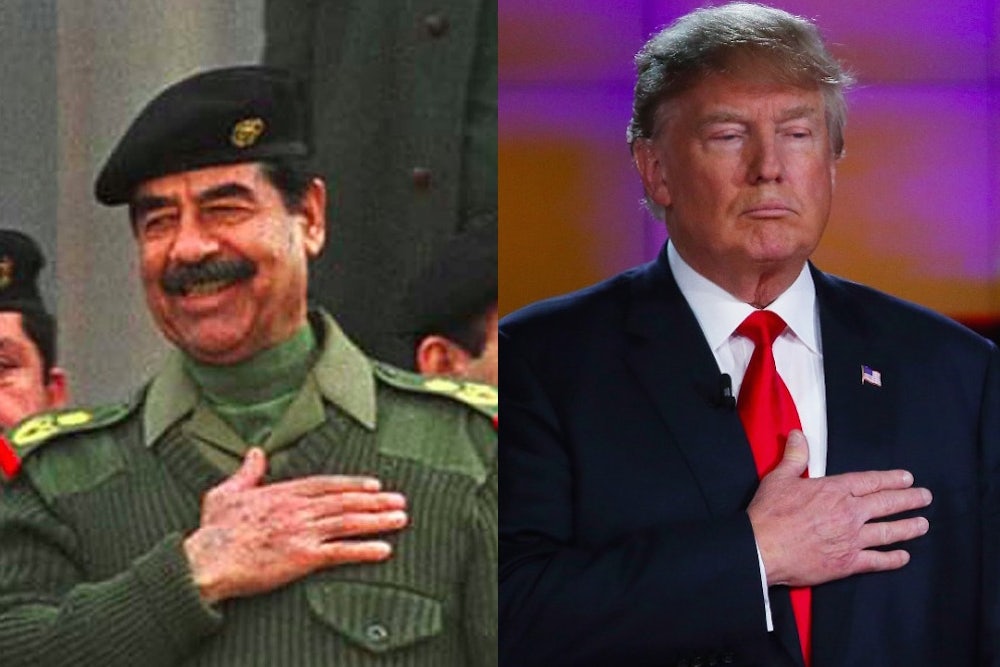After Trump departed from script Tuesday night to emphasize that Hussein wasn’t all bad (he murdered people without due process after all) a number of reporters chimed in to note that what Trump said wasn’t entirely new. He’s been praising the former Iraqi dictator for killing terrorists (or suspected terrorists or just people he didn’t like) for months, and the media has covered those episodes vigilantly.
Here’s how the Washington Post’s Dave Weigel summed up the disconnect between the oldness of the news and the newness of the outrage.
By consistently covering Trump’s argument over time, and by following up on it, media outlets did their job to inform voters. That was why Tuesday night’s collective Captain Renault moment was so strange, and so demonstrative of why many media consumers are skeptical of what they’re hearing. Instead of a debate on the facts—should Hussein have been removed? Did he “kill terrorists,” in a contradiction of what Americans were told before the war?—there was manufactured outrage, straight from a rival campaign.
It sells the reporters who discovered Trump’s Saddam sympathies anew somewhat short to suggest this was a case of Hillary Clinton saying jump and them asking “how high?” When I was a freshman beat reporter, an editor of mine had to remind me constantly that old news can become newsworthy again in fresh contexts. It isn’t particularly fun to rehash things that have already been reported, and the profession prizes information that really, truly is new. But even if Trump had repeated one of his past paeans to Saddam verbatim, it would have been a newsworthy moment nonetheless.
The new context is twofold: First, the campaign has transitioned from the primary to the general election. Trump is facing an opponent who isn’t constrained in attacking him, and is speaking to a much larger audience of voters than he was when he first upsold Saddam’s killing ways. Second, Trump is beset by concerns that he’s too erratic to capitalize on Clinton’s weaknesses. The fact that he reached for the old Saddam chestnut on the same day the FBI director took Clinton to the woodshed validated those concerns. No less a liberal media sympathizer than Senate Majority Leader Mitch McConnell has been at pains to criticize Trump for being unable to stick to a script. Reporters would be doing their jobs poorly if they ignored the fact that Trump can’t break old habits, just because the habits are old. Nobody criticized reporters in 2012 for scandalizing Mitt Romney’s infamous 47 percent comments, even though he and Paul Ryan had framed the entire campaign as a morality tale pitting makers against moochers. New context and clearer phrasing are what made that story so explosive. This is really no different.
